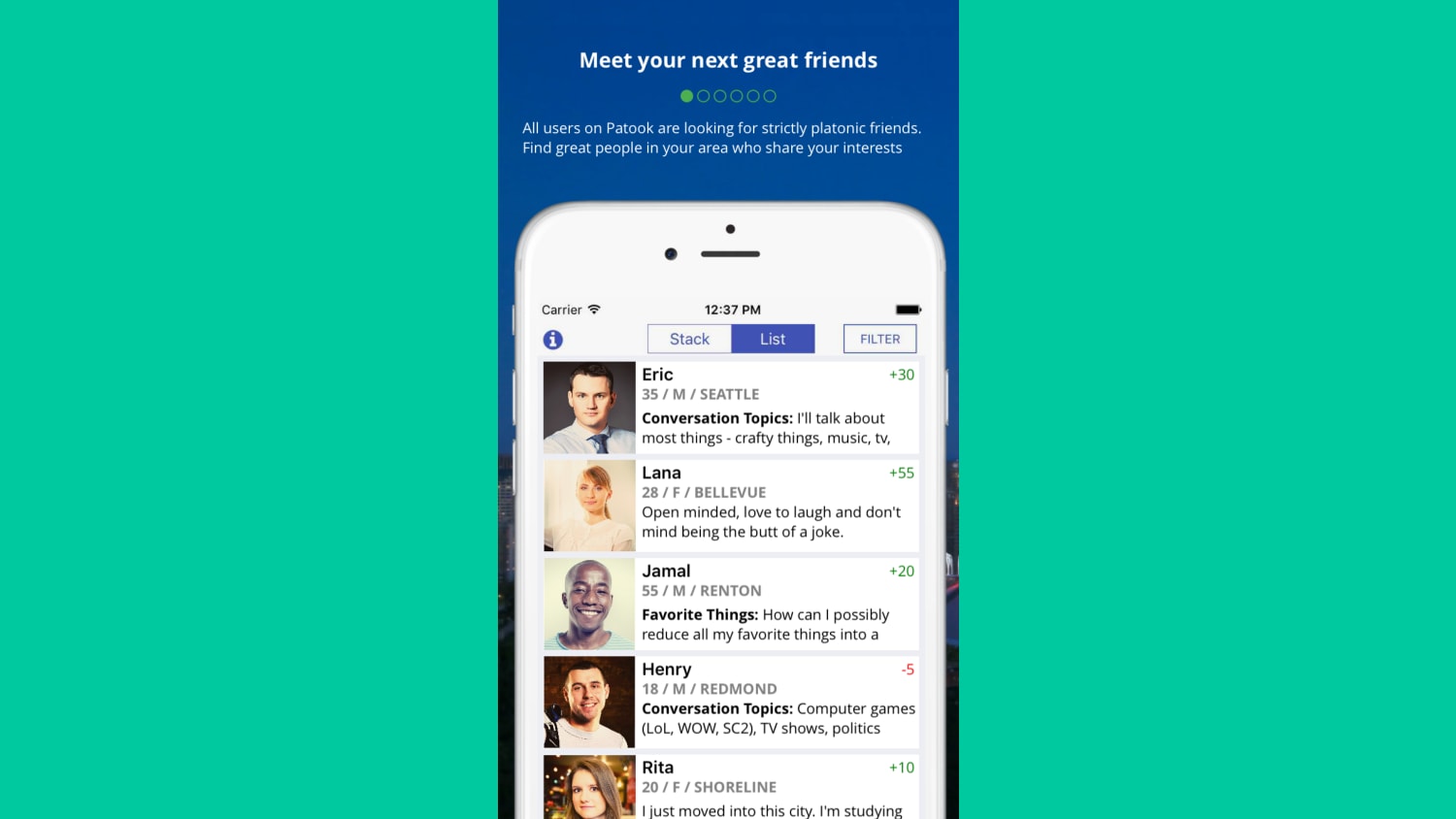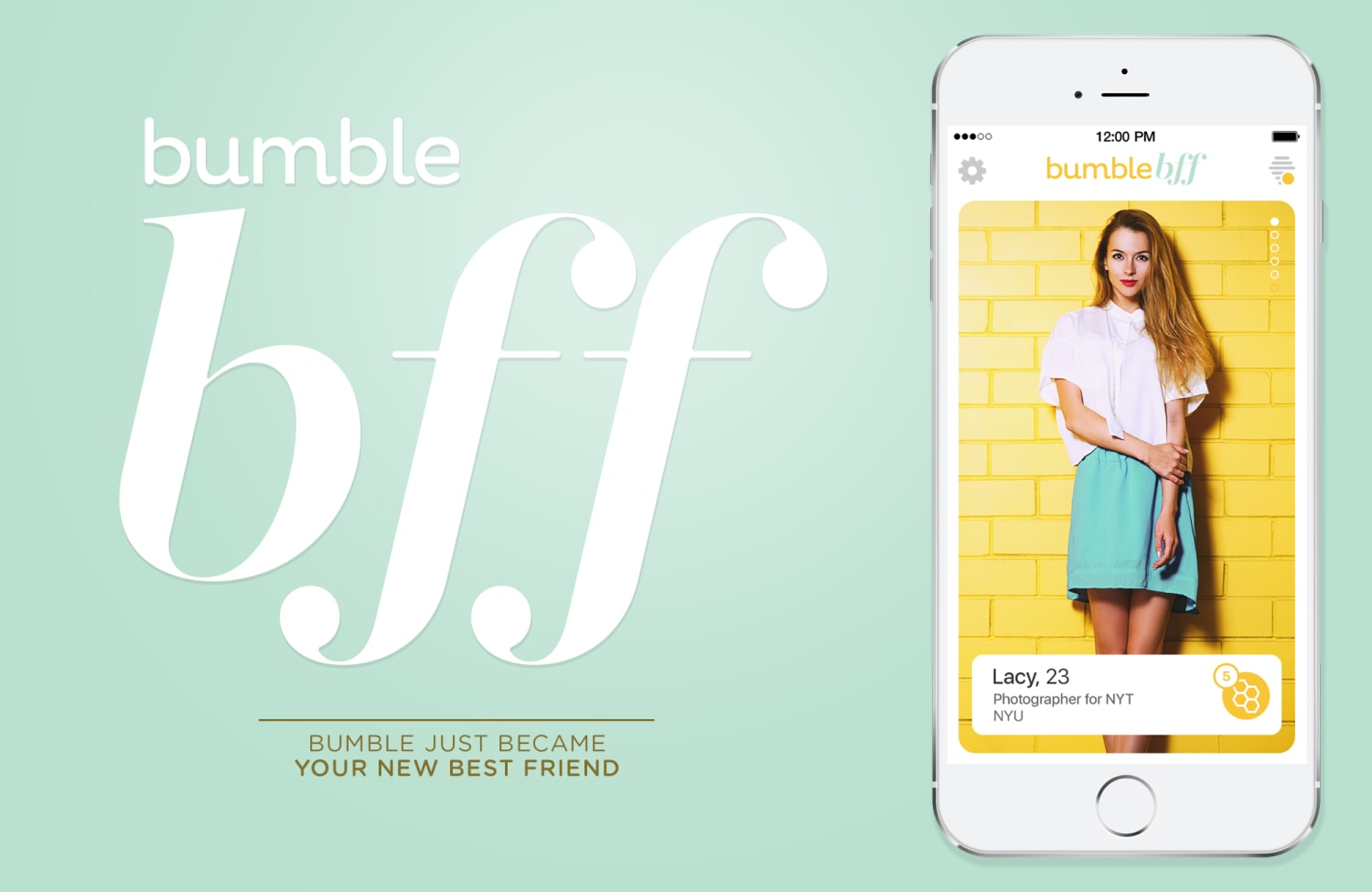Dating apps have already shown that they have the potential to disrupt how society finds love. But can they do the same for friendship? Hoping to cater to a generation of app-happy singles who have grown up comfortable with the idea of building friendships online through chat rooms and Reddit threads, a new wave of intrepid players wants to find out.
The newest entry to the market is Patook, which launched over the summer. “There were lots of dating apps on the market and lots of news about them in various outlets, but nothing really about friend-making apps,” founder Antoine Daher told GeekWire. “We ran a survey a year ago of about 2,000 random people to see how hard it was for them to make new friends once they hit adulthood. We were surprised to see that only one out of three people found it easy to make friends, and fewer than 20 percent of people found it easy to make new friends within five years of moving to a new city.”
Patook takes a high-tech approach to platonic matching: The app’s key feature is an algorithm based in artificial intelligence that detects when individuals are using the platform for flirting rather than friendship. The app also takes a “smart” approach to building friendships, matching users with others based on a weighted selection of traits they’ve ranked as important.







